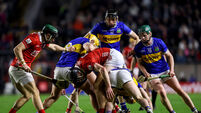Internet becomes key weapon in terrorists’ arsenal
But the plight of the British construction worker and his two murdered American colleagues has also raised concerns about the tremendous ability of terrorists to set agendas in an internet era that makes their messages - even in the form of shocking beheading videos - all but impossible to stop.
By Thursday, Mr Bigley and his anguished family were well-known figures in Britain, protagonists in a grim drama orchestrated with chilling expertise by Islamic militants a world away.














